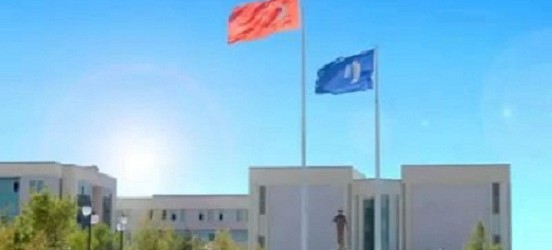At Usak University, a state of the art civil, textile, and mechanical engineering department and practicum building arose from a vast and empty plain in just less than nine months. The turn-around time in construction knows no delay in Turkey. No wonder, then, that when the government proposed a massive expansion of the higher education system in 2005, schools began opening their doors all across working-class towns by the next calendar year. Along with Usak University, founded in 2006, some 60 new public universities, over half the total, have been built in the past six years. Following the trend 36 new foundation universities have opened in the same time frame, bringing the total number of Turkish universities up to about 165. Given most new universities shoot for an undergraduate total of 10,000 students, over half a million students have entered college since 2006.
On the face of it, this expansion may seem a pinnacle turning point in Turkey’s design to play in the big leagues of Europe, creating precedents of higher education for the majority of youth and more skilled employees to enter the marketplace and continue Turkey’s strong economic growth. Surely the growth of universities, once doctorate programs are in place, will fill the need for a slew of new professorships and instructors in a self-perpetuating job market. Still, this will take years for students to work through the system and receive doctoral degrees. While in America or Germany the trend of 4-year colleges for all faces debate, there is no question that Turkey has a need for more skilled workers. The question then becomes, is doubling the size of the higher education system in 5 years the best way to reach that goal?
There are two distinct issues that might be raised here, both of which will need the benefit of time to construct an analysis in full. First, there are physical questions of urban planning. New public universities are built building-by-building, with the central government allotting funds on a per-project basis as the need for more space arises. With the constant expansion of the universities comes a constant lack of space, leading to scheduling issues and a pervasive sense of the university as construction site. Usak University’s main library moved no less than three times in the course of two academic years. Ostensibly the construction will eventually die down, but not before the university will have taken on a shape that is possibly disjointed and inefficient in its mosaic design. Universities are also re-defining the space of the rural hubs in which they sit-most of which are slowly sprawling out to meet campuses built three to four kilometers outside the city center. It is in the interest of these communities to work closely with universities in constructing a vision of advancement desirable for both incoming students and the families already present.
A second issue deals with economic efficiency of finding employment post-graduation. While Turkey needs native skilled workers, its economy cannot double in size to meet the lightning quick university expansion. Students face a very real risk of unemployment post-graduation due to the flood of new hires coming to market since 2010. Take, as an example, the civil service system, which employs 2.26 million people (Turkey’s population is 73 million) and experienced almost 100 % growth from 1980-2010 only to drop off to more feasible levels of growth since. Students wanting to enter the civil service, of which anyone in the education faculty or public management faculty, two of the most common start-up faculties at new universities, would be, receive hiring offers solely on the basis of a nationally administered exam given annually. In 2010, the success rate for teachers was about 17 %, varying depending on the teaching subject matter. For the other 83 % of new grads, they’re faced with the choice of taking a gap year to study for the exam again, and again, until they pass, or entering the private teaching market which offers significantly less pay, a schedule including nights and weekends, and none of the premium insurance benefits provided in government.
Turkey’s public university experiment has high hurdles to jump if it wants to succeed. Communication with officials in new university towns and incentives for the private sector to expand and offer competitive positions with secure benefits will be essential. Though costs to this project are high, so too are the rewards. May Turkey prosper from its exponential growth of university graduates in the coming years.
Leslie ESBROOK
Juris Doctor Candidate, Yale Law School 2015
Fulbright Scholar 2010-2012

























































